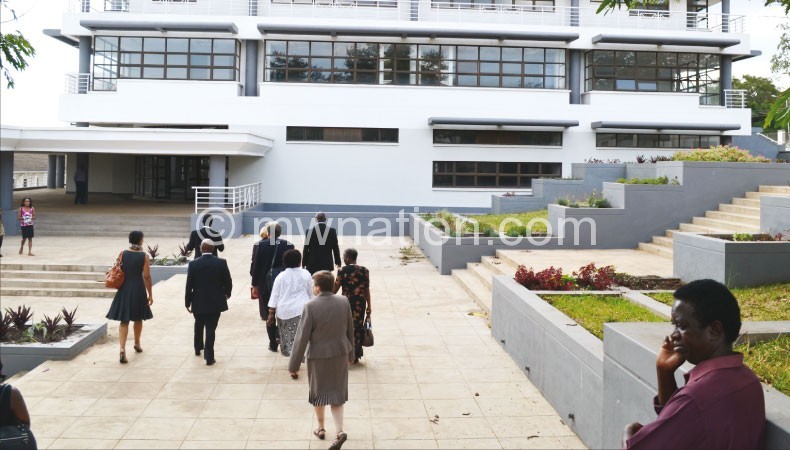Panic as Kuhes hikes fees to K1m
Ministry of Education’s approval of tuition fees hikes in the country’s public universities has raised fears of less-privileged learners’ access to higher education amid economic hardships.
The reactions follow the recent approval of Kamuzu University of Health Sciences (Kuhes) tuition fees hike from K400 000 to K1 million per year which has thrown off balance the Higher Education Students Loans and Grants Board which now has to either trim the number of beneficiaries to below the 26 000 targeted this year. To accommodate the Kuhes hike, the Loans Board will need an extra K6 billion. Each student is budgeted to get K650 000 per year.

Besides tuition fees, a public university student needs an average of K150 000 per month for accommodation, food and stationery.
Reacting to the announcement yesterday, Civil Society Education Coalition (Csec) said the ministry’s approval of tuition fees hike for the six public universities will negatively impact on the less privileged Malawians.
Mid this year, University of Malawi (Unima), Malawi University of Science and Technology (Must), Lilongwe University of Agriculture and Natural Resources (Luanar) and Mzuzu University (Mzuni) also got the Ministry of Education approval to adjust upwards their tuition fees.
In a statement issued yesterday, Csec board chairperson Limbani Nsapato and executive director Benedicto Kondowe said the coalition, a vanguard for educational rights in Malawi, opposes such fee hikes because of their potential repercussions on university education in the country.
Said Kondowe: “The consequence is an alarming surge in the number of students predominantly from economically disadvantaged backgrounds being shackled by financial constraints and forced to abandon their academic pursuits.”
Nsapato said the Loans Board faces a huge task to meet the financial needs of needy students.
“The Loans Board is already teetering on the brink, [and] now faces an untenable challenge to meet the exacerbated financial needs of students,” he said.
The coalition has since asked the government to, among other things, swiftly re-evaluate the fee adjustment and increase HELGB funding to support the needy students.
In a separate interview yesterday, Loans Board executive director Prince Phwetekere said the fee hike has created a deficit of about K6 billion to support needy students in both public and private accredited universities in the 2023/24 academic year.
He said the board initially planned to spend about K16 billion on about 26 000 needy students, but the institution now needs about K22 billion to maintain the number of beneficiaries.
Phwetekere noted that the public university fees hike means that needy students’ bracket will increase as some who were able to pay the old fees, can now not afford the new fees.
He said: “Government provided for about K16 billion as a loan fund, but with the increase, it shot to around K22 billion. So, in the Mid-Year Budget Review, the government is supposed to provide for that in the loan fund for the Loans Board.
“But the student should not despair because universities are parastatals of the government and government is always aware of the fee hike; and because fees are rising, what is it that we need to do to cushion the students to ensure that they don’t panic.”
Meanwhile, Parliament yesterday passed the Mid-Year Budget Review with revised allocations.
In his reaction to the fee hike, Malawi Public University Students Union president Hope Banda noted that the increase will lead to the withdrawal of many students from the less privileged families.
He said it is sad that the government could not consider the students’ request to implement the fee hike in phases, as public universities are now becoming institutions for the elite.
But Ministry of Education spokesperson Mphatso Nkuonera said yesterday the fee hike approval followed thorough assessment on what is required to train a student at a particular university.
Must revised fees from K450 000 to K650 000 while Mzuni revised from about K400 000 to K650 000. Unima proposed to hike its fees to K800 000, but the ministry approved K650 000 while Luanar raised fees from K350 000 to K600 000.
Meanwhile, Malawi University of Business and Applied Sciences proposed an increase from about K450 000 to K1.5 million. However, the university is yet to communicate the new fees.






One Comment